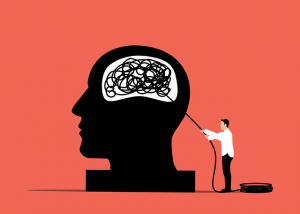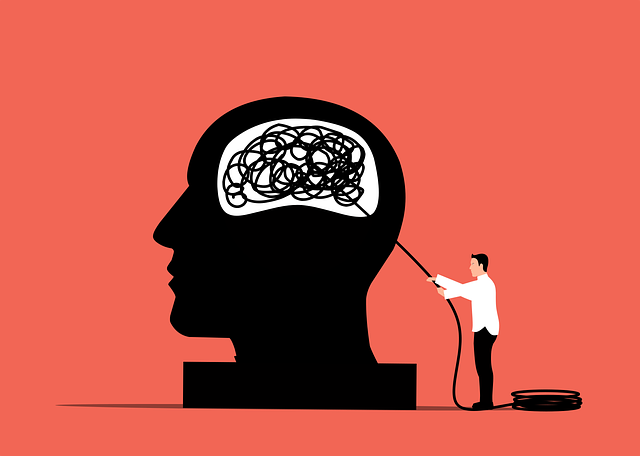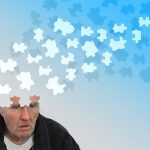Aphantasia is a condition that affects an individual’s ability to visualize images in their mind’s eye. It is a relatively new term, coined in 2015 by neurologist Adam Zeman. People with Aphantasia are unable to create mental images of people, places, or objects, and they lack sensory imagination. This condition can have a significant impact on an individual’s life, affecting their memory recall and creativity.
The prevalence of Aphantasia is not yet known, but it is estimated that around 2-3% of the population may have this condition. However, due to the lack of awareness and research on this topic, many people may not even realize they have Aphantasia. It is essential to discuss this condition to raise awareness and provide support for those who may be struggling with it.
Causes of Aphantasia
 The causes of Aphantasia are not yet fully understood, but there are several factors that may contribute to its development. Genetic factors may play a role in some cases, as there have been reports of families with multiple members experiencing Aphantasia. Brain injuries or trauma can also lead to Aphantasia, as damage to the visual cortex or other parts of the brain can affect an individual’s ability to visualize images. Other medical conditions such as depression or anxiety may also be associated with Aphantasia.
The causes of Aphantasia are not yet fully understood, but there are several factors that may contribute to its development. Genetic factors may play a role in some cases, as there have been reports of families with multiple members experiencing Aphantasia. Brain injuries or trauma can also lead to Aphantasia, as damage to the visual cortex or other parts of the brain can affect an individual’s ability to visualize images. Other medical conditions such as depression or anxiety may also be associated with Aphantasia.
Symptoms of Aphantasia
The primary symptom of Aphantasia is the inability to visualize images in one’s mind’s eye. This can make it challenging for individuals to remember faces or places and can affect their creativity and imagination. People with Aphantasia may also have difficulty with memory recall, as they cannot mentally picture past events or experiences. Additionally, they may lack sensory imagination, making it difficult for them to imagine smells, tastes, or textures.
Diagnosis of Aphantasia
Diagnosing Aphantasia can be challenging, as there is no standardized test for this condition. However, there are several self-assessment tests available online that can help individuals determine if they have Aphantasia. Clinical assessments may also be conducted by a healthcare professional, which may involve asking the individual to visualize specific images or recall past events. Imaging tests such as fMRI may also be used to assess brain activity during visualization tasks.
Treatment Options for Aphantasia
Currently, there is no cure for Aphantasia, but there are several treatment options available that may help individuals manage their symptoms. Cognitive Behavioral Therapy (CBT) is a type of talk therapy that can help individuals change negative thought patterns and behaviors. Neurostimulation, such as transcranial magnetic stimulation (TMS), is a non-invasive procedure that uses magnetic fields to stimulate nerve cells in the brain. Medications such as antidepressants may also be prescribed to help manage symptoms of depression or anxiety.
Cognitive Behavioral Therapy for Aphantasia
CBT is a type of therapy that focuses on changing negative thought patterns and behaviors. It can be helpful for individuals with Aphantasia who may struggle with negative thoughts about their condition or feel frustrated by their inability to visualize images. CBT can help individuals develop coping strategies and improve their overall quality of life.
Neurostimulation for Aphantasia
Neurostimulation is a non-invasive procedure that uses magnetic fields to stimulate nerve cells in the brain. It has been used to treat a variety of conditions, including depression and anxiety. Some studies have shown that neurostimulation may also be helpful for individuals with Aphantasia by improving their ability to visualize images.
Pros and Cons of Aphantasia Treatment
The benefits of treatment for Aphantasia include improved quality of life, better memory recall, and increased creativity and imagination. However, there are potential risks and side effects associated with some treatments, such as medication. Additionally, not all individuals may respond to treatment, and there is a lack of research on the long-term effects of these treatments.
Challenges of Treating Aphantasia
One of the main challenges of treating Aphantasia is the lack of research on this topic. There is still much to learn about the causes and potential treatments for this condition. Additionally, there are limited treatment options available, and not all individuals may respond to these treatments. There may also be individual differences in response to treatment, making it challenging to develop a standardized approach.
Aphantasia is a condition that affects an individual’s ability to visualize images in their mind’s eye. It can have a significant impact on an individual’s life, affecting their memory recall and creativity.
While there is no cure for Aphantasia, there are several treatment options available that may help individuals manage their symptoms. It is essential to raise awareness about this condition and provide support for those who may be struggling with it. Future research may help us better understand the causes and potential treatments for Aphantasia, providing hope for those affected by this condition.








